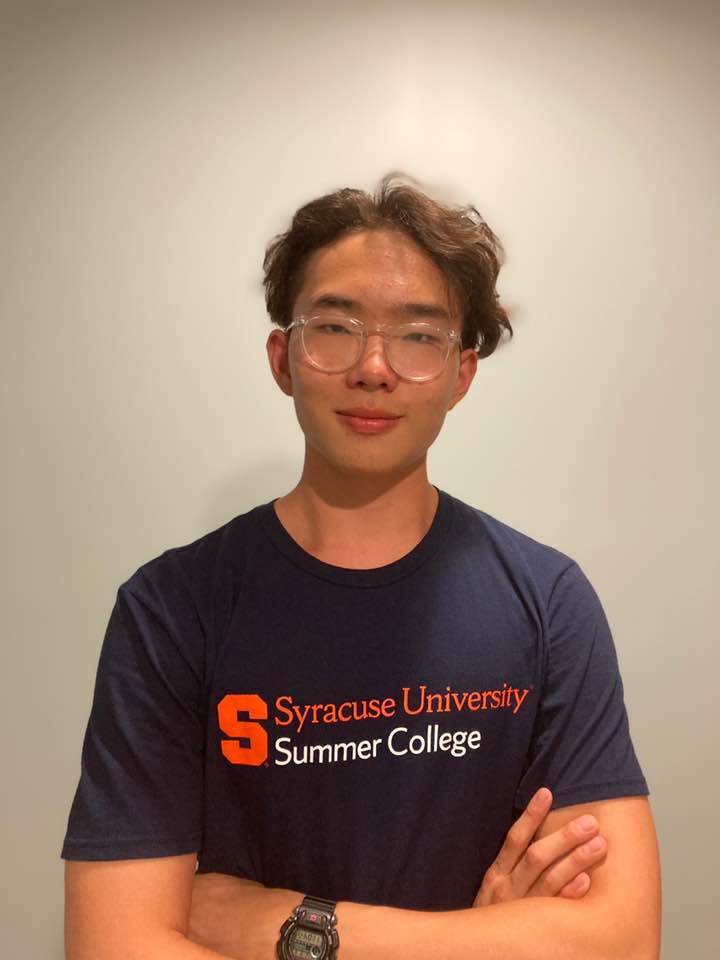Course Overview
This STEM course introduces students to Python, a beginner-friendly yet powerful programming language widely used in industries like Machine Learning, Data Science, and Artificial Intelligence. Through hands-on activities, students will build a solid foundation in key programming principles such as procedural programming, control structures, and data structures, which are essential for learning any coding language.
Students will gain practical experience by exploring Python’s robust ecosystem, working with modules like requests, Pandas, and various data visualization tools. By the end of the course, students will apply their knowledge to solve real-world problems through Python-powered applications.
The course takes an applied approach, teaching students how to think critically and approach problems using data-driven solutions.
All students who successfully complete the course will receive a Certificate of Completion and have the opportunity to request a Syracuse University noncredit transcript.
Learning Objectives
At the end of the course, students will be able to:
- Understand the fundamentals of Python programming.
- Apply procedural programming, control structures, and data structures.
- Utilize Python libraries such as Pandas for data manipulation and visualization tools.
- Develop computational thinking to create creative and efficient solutions to real-world challenges.
Course Information
Course Prefix and Number: SCN 042
Format: On-Campus (at Syracuse University)
Eligibility: Students must be of rising high school sophomore, junior, or senior status – or a 2025 high school graduate.
Credit: Noncredit
Grading: Pass/Fail
- Residential: $4,295
- Commuter: $3,318
Program rates are subject to change and will be approved by the board of trustees. Discounts and scholarships are also available.
Program Information
Summer College – On Campus: Experience what college is really like: take a college-level course, live in a residence hall, have meals with friends in a dining hall, and participate in activities and events on campus.

“Syracuse University Summer College was far above my expectations. I could have a VR simulation of a college student’s life. I could experience education from a professor and share thoughts about many topics with other colleagues. Also, I had a chance to talk with one of the Syracusans, which enabled me to hear about life at Syracuse University from an insider. Makings acquaintances, including friends and teachers, and working and talking with them is another priceless asset you get from the program.”
— Jaewan P., Summer College – Online Coding: Learn to Code Student, 2020
Course Dates and Details
| Program | Course Dates | Class Time (Eastern Time) | Credit/Noncredit |
|---|---|---|---|
| Summer College – On Campus | 2-Week Session II: Sunday, July 20 – Friday, Aug. 1, 2025 | MTWThF; 9 a.m. – 4 p.m. | Noncredit |
To see if this course is ‘open,’ refer to the full course catalog.
Course Requirements
Technology Requirements
- No prior coding experience is required!
- You must have a Mac or Windows laptop computer. Please note: Chromebooks sometimes struggle with course material.
Typical Day
Tentative Schedule
Each day will begin with a review of previous topics followed by discussion about new topics based on content given to complete before class. In a typical day you will be given the opportunity to practice new techniques before applying to assignments. This will be done as follows:
- Coding Labs: You will be learning basic concepts through this guided tutorial.
- Homework and In Class Assignment: Based on concepts discussed in the lab you will be given the opportunity to practice what you have learned by applying through a series of practical challenges.
- Office Hours: Provided to assist students.
Faculty Bios
Angela Usha Ramnarine-Rieks, Ph.D.

Angela Usha Ramnarine-Rieks teaches courses related data and content management, programming, and change management at the School of Information Studies at Syracuse University. As a researcher, she has a keen interest in understanding the implications in the adoption and adaptation of new technologies. Ramnarine-Rieks is currently part of a research team exploring the socio-technical impacts of the smart grid phenomenon in the energy industry. Exposure to this domain began with postdoctoral work with the smart grid research team at Syracuse University. Her other research track explores integrating computational thinking into literacy. Yes, that means she supports the premise that all should learn to code.
